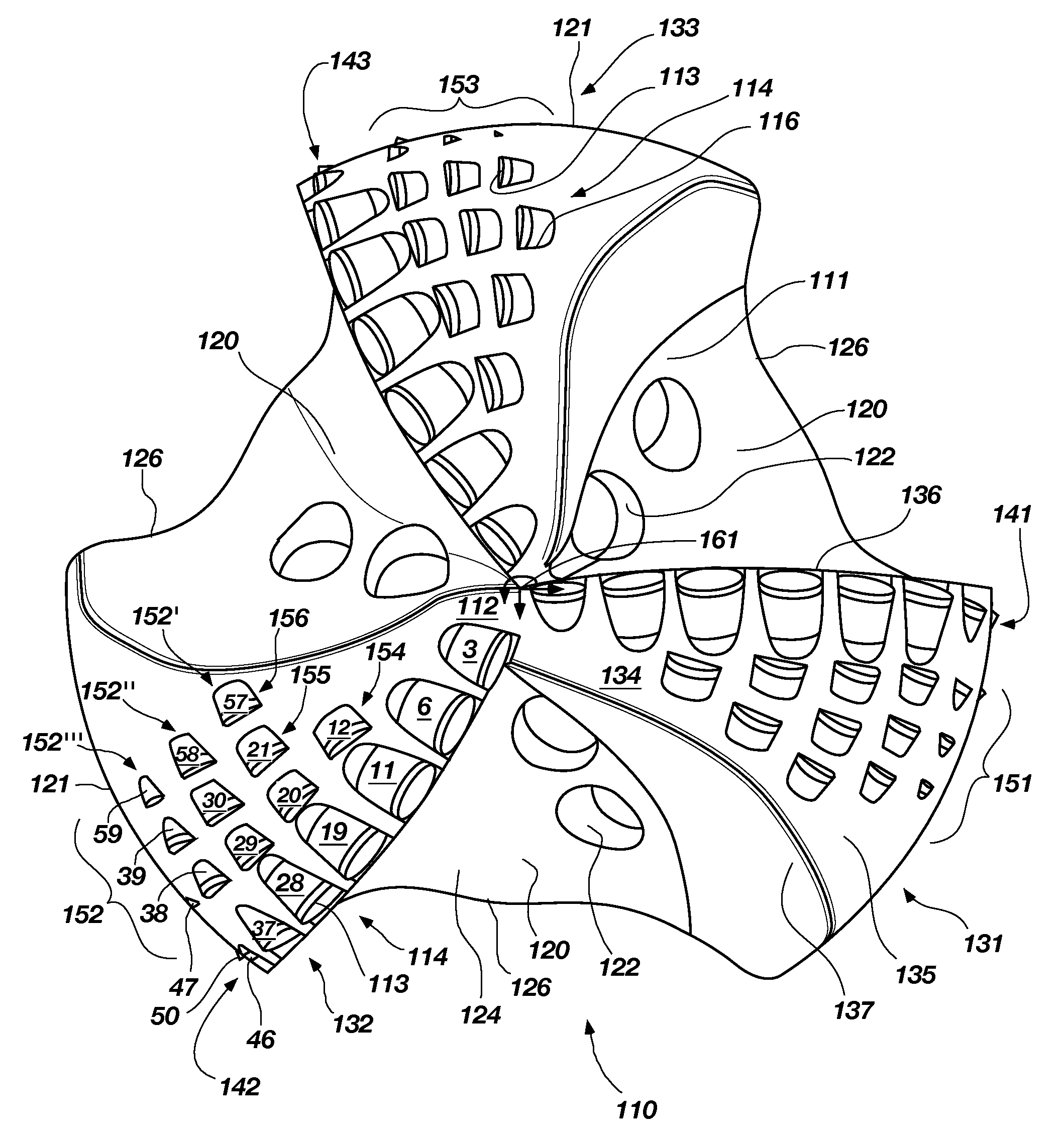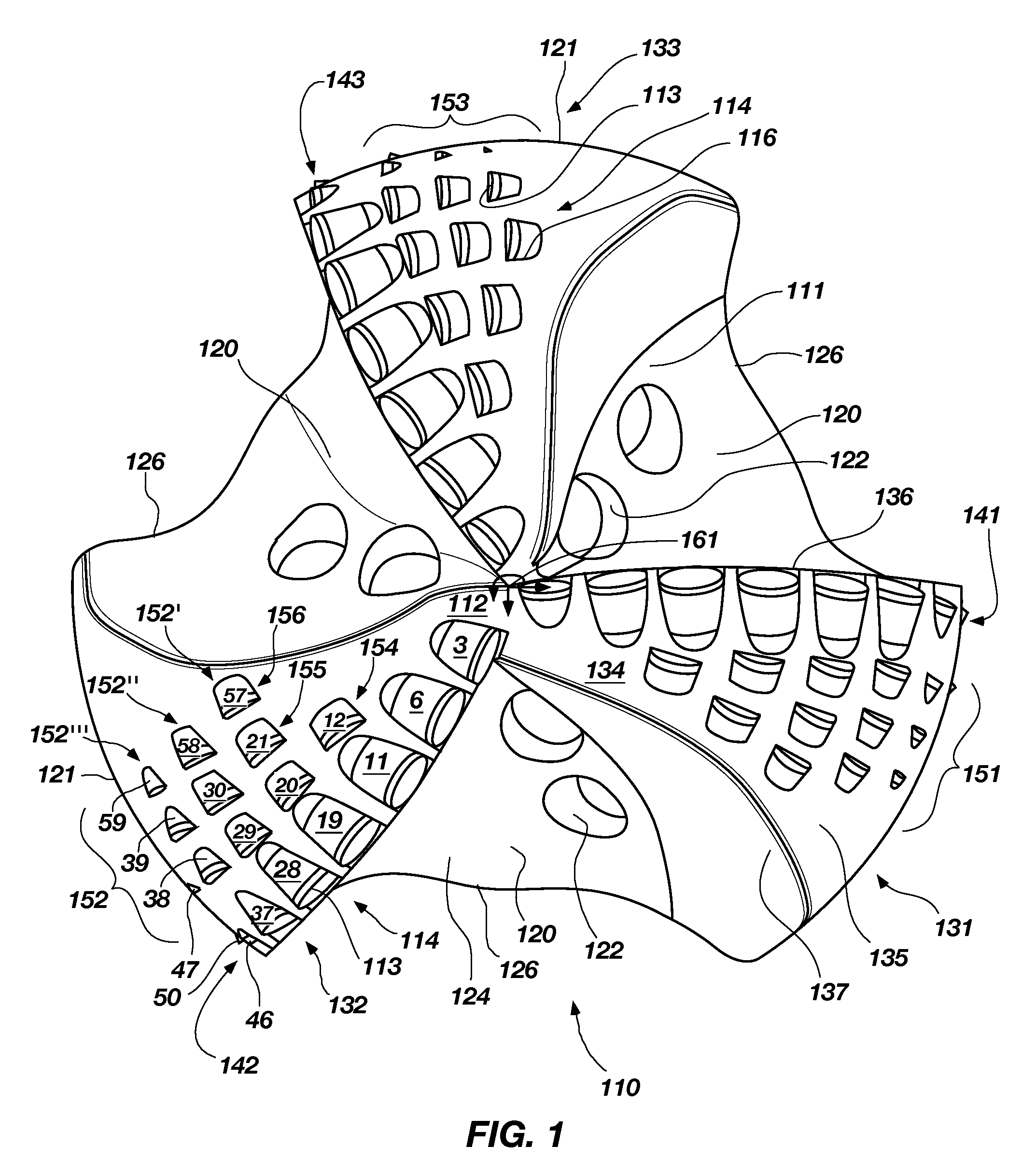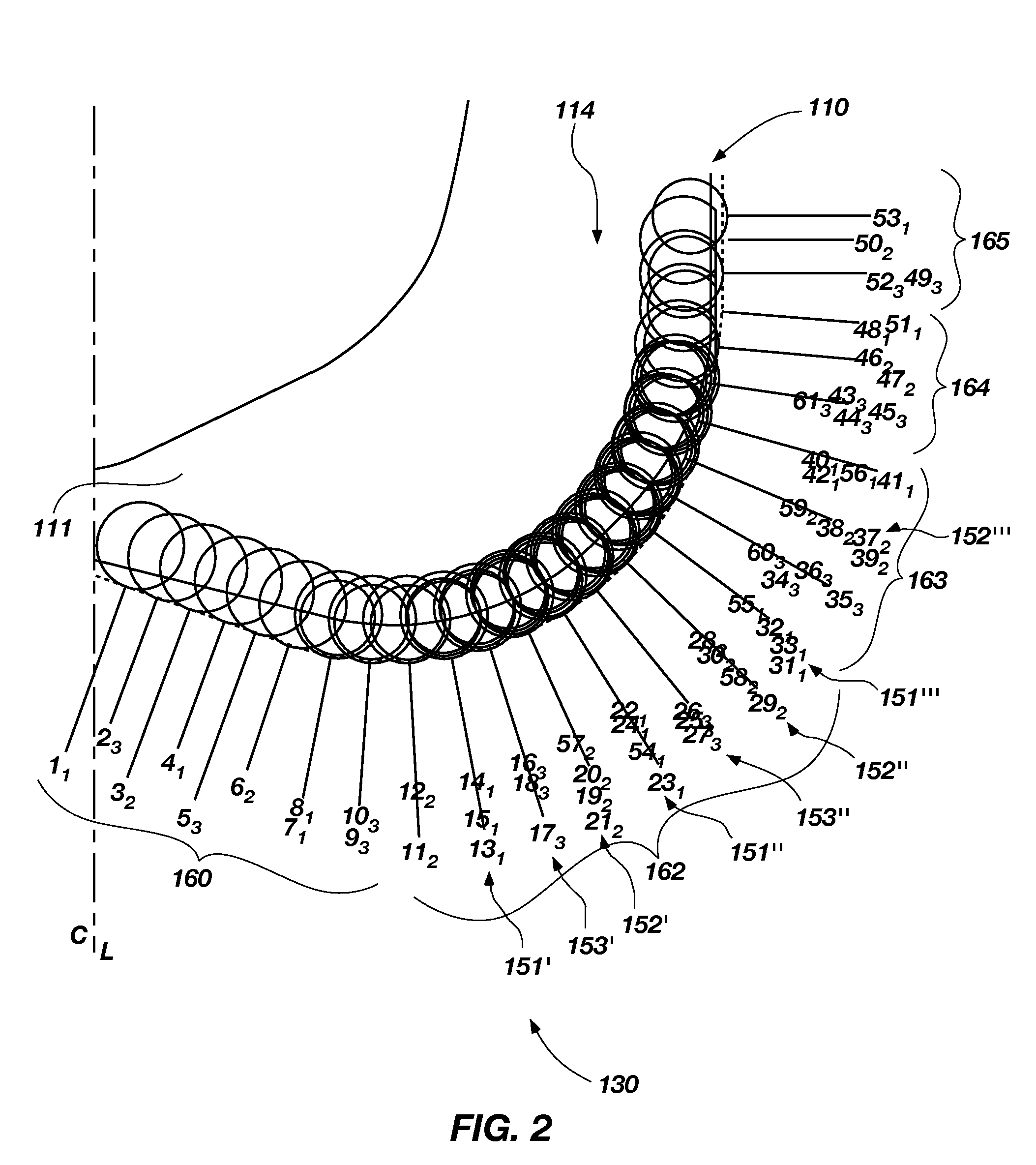Rotary drag bit and methods therefor
- Summary
- Abstract
- Description
- Claims
- Application Information
AI Technical Summary
Benefits of technology
Problems solved by technology
Method used
Image
Examples
first embodiment
[0062]In accordance with the invention as shown in FIG. 1, the rotary drag bit 110 comprises three blades 131, 132, 133, three primary cutter rows 141, 142, 143 and three backup cutter groups 151, 152, 153, respectively. While three backup cutter groups 151, 152, 153 are included, it is contemplated that the drag bit 110 may include one backup cutter group on one of the blades or a plurality of backup cutter groups on each blade greater or less than that illustrated. Further, it is contemplated that the drag bit 110 may have more or fewer blades than the three illustrated. Each of the backup cutter groups 151, 152, 153 may have one or more backup cutter sets. For example, without limitation, the backup cutter group 152 includes three backup cutter sets 152′, 152″, 152′″. A detailed description of backup cutter sets 152′, 152″, 152′″ of the backup cutter group 152 is now provided.
[0063]Each primary cutter row 141, 142, 143 is arranged upon each blade 131, 132, 133, respectively. Rota...
second embodiment
[0079]FIG. 5 shows a frontal view of a rotary drag bit 210 in accordance with the invention. The rotary drag bit 210 comprises six blades 231, 231′, 232, 232′, 233, 233′, each having a primary or first cutter row 241 and a second cutter row 251 extending from the center line C / L of the bit 210. The cutter rows 241, 251 include cutters 214 coupled to cutter pockets 216 of the blades 231, 231′, 232, 232′, 233, 233′. It is contemplated that each blade 231, 231′, 232, 232′, 233, 233′ may have more or fewer cutter rows 241, 251 than the two that are illustrated. Also, each of the cutter rows 241, 251 may have fewer or greater numbers of cutters 214 than illustrated on each of the blades 231, 231′, 232, 232′, 233, 233′. In this embodiment, blades 231, 232, 233 are primary blades and blades 231′, 232′, 233′ are secondary blades. The secondary blades 231′, 232′, 233′ provide support for adding additional cutters 214, particularly, in the nose region 262 (see FIG. 6) where the work requireme...
fourth embodiment
[0111]The cutters 514 in cutter rows 541, 542, 543, 544, 545, 546 are fully exposed primary cutters as shown in FIG. 23, which shows a cutter and blade profile 530 for the invention. The drag bit 510 has a cutter density of 51 cutters and a profile as represented by cutter and blade profile 530. The cutters 514 are numbered 1 through 51. The cutters 1-51, while they may include aspects of other embodiments of the invention, are not to be confused with the numbered cutters of the other embodiments of the invention. The cutters 514 in cutter rows 544, 545, 546 are positioned in adjacent rotary paths and fully exposed with respect to the cutters 514 in cutter rows 541, 542, 543 allowing the cutters 514 to provide the diamond volume in certain radial locations on the drag bit in order to optimize formation material removal while controlling cutter wear. In this respect, cutters 1-51 provide the cutter profile conventionally encountered on a 6 bladed drag bit, however the cutters 1-51 ar...
PUM
 Login to View More
Login to View More Abstract
Description
Claims
Application Information
 Login to View More
Login to View More - R&D
- Intellectual Property
- Life Sciences
- Materials
- Tech Scout
- Unparalleled Data Quality
- Higher Quality Content
- 60% Fewer Hallucinations
Browse by: Latest US Patents, China's latest patents, Technical Efficacy Thesaurus, Application Domain, Technology Topic, Popular Technical Reports.
© 2025 PatSnap. All rights reserved.Legal|Privacy policy|Modern Slavery Act Transparency Statement|Sitemap|About US| Contact US: help@patsnap.com



